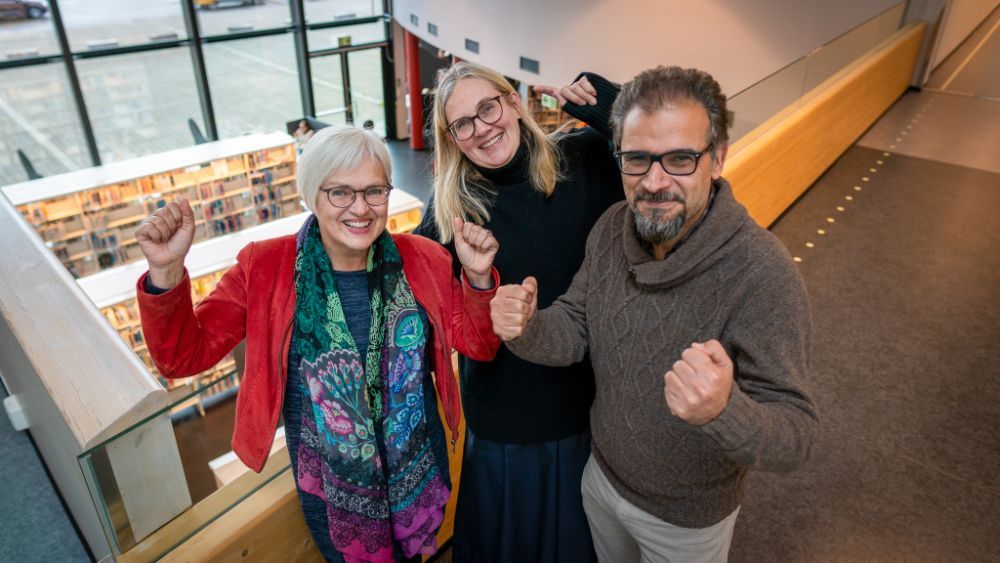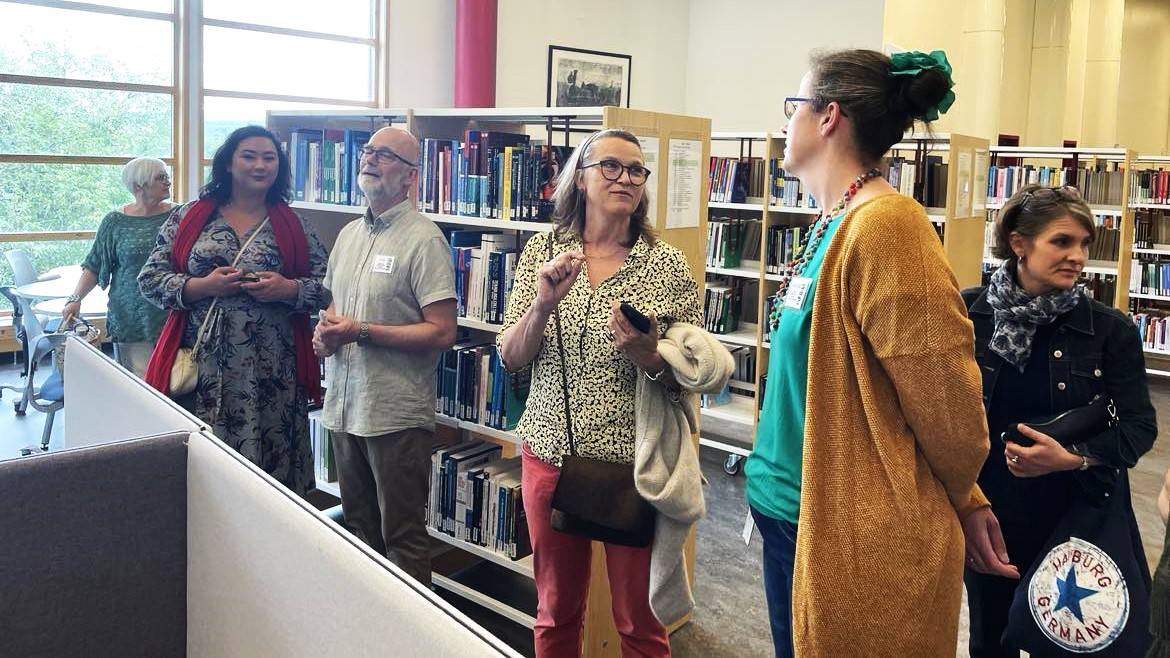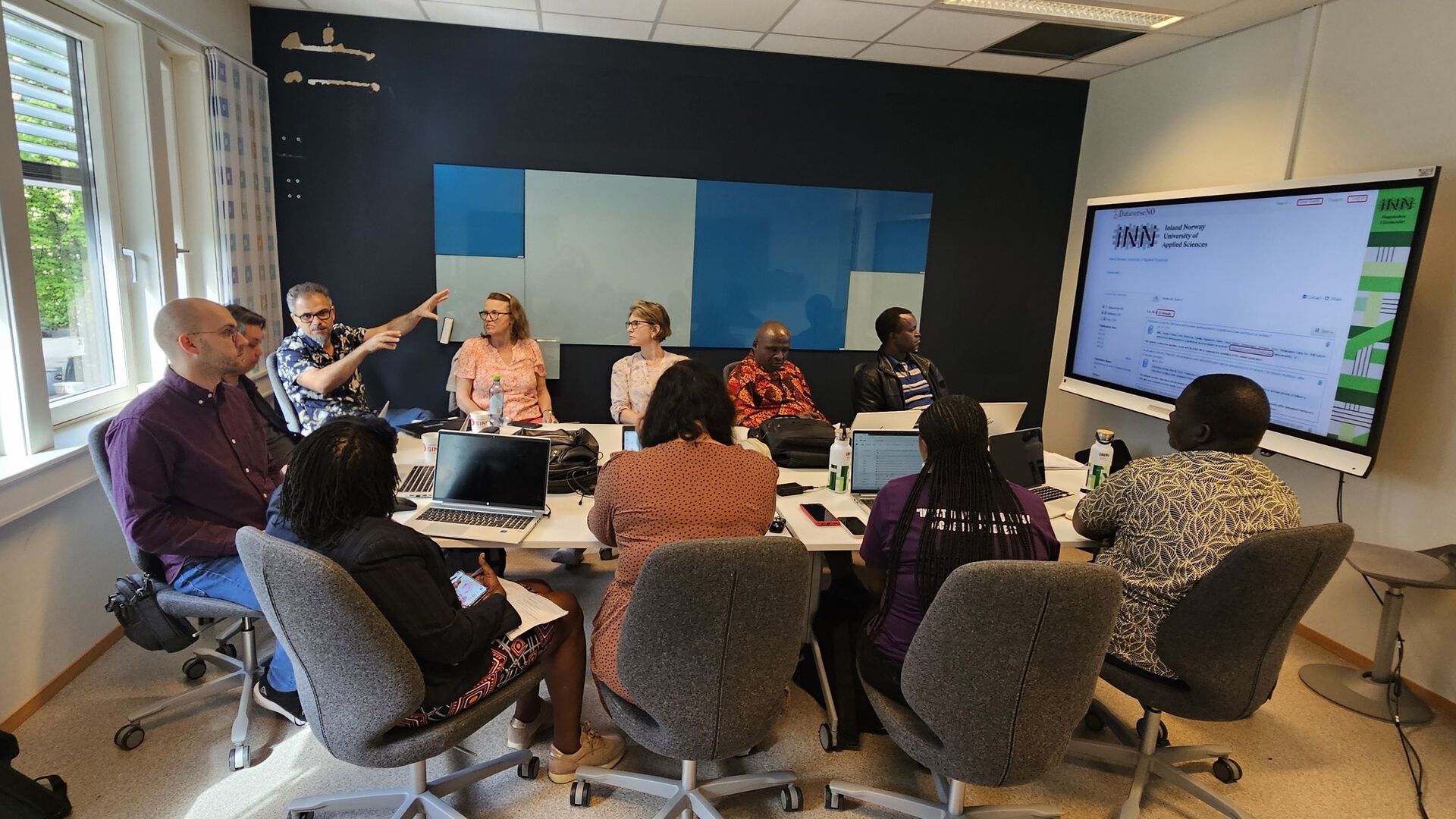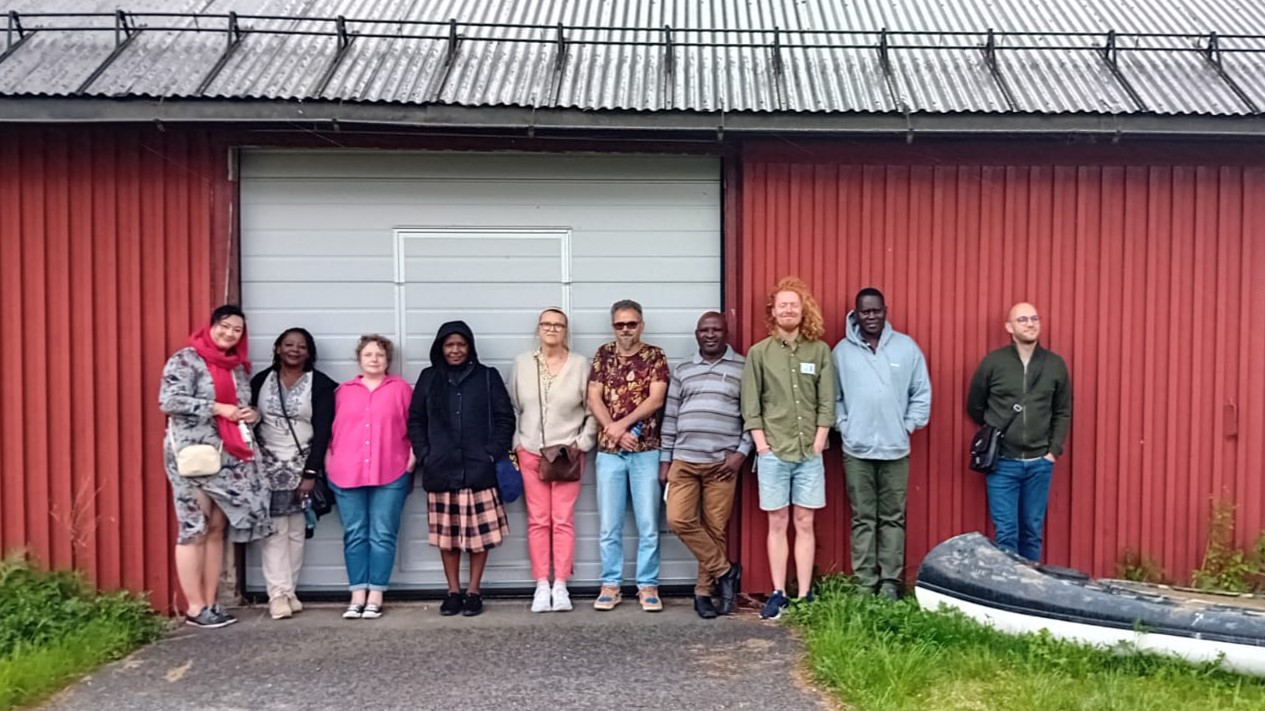Erasmus+ is the EU's programme for education, training, youth, and sport. It is the largest eduication programme in the world, with a budget of 28.8 billion euros for the period 2021-2027. As of today, there are only three Erasmus+ projects with Norwegian project management.

NOK three million from the EU
– This is a major recognition of our university library, says Elin Opheim, university librarian at the Elverum campus. She is the manager of the project, which received NOK three million from the EU a year and a half ago.
The project, 'Navigating the digital landscape: universities partnering for change (NIAGARA)', is now halfway through its project period.
– The main goal is to use the collaboration to improve and expand information services, by developing the libraries' technological infrastructure and the digital competence of librarians, says Opheim.
Campus tours
The delegation, with representatives from partner institutions in Tanzania (University of Dar es Salaam and Sokoine Agricultural University), Zambia (University of Zambia and University of Barotseland) and Poland (Jagiellonian University) as well as OsloMet, visited Elverum, Rena, and Evenstad on Thursday, while the university library in Hamar was the meeting place on Friday.
– Seeing how the libraries engage with students and staff has been fascinating. The libraries are so open and inviting, says Francina Makonda from the University of Zambia. She also highlights learning about how the university library works in temas with support services as particularly interesting.

Marek Deja from Jagiellonian University also points out the openness of the libraries, both in terms of the physical space and how services are offered.
– We have seen many examples of good practice that we will use in our libraries, he says.
Pro-Rector for Education, Stine Grønvold, met the delegation in Hamar.
– At INN, the library is the heart of the institution and a safe haven for students, where they are not met with, for example, grade requirements. Here, they can work together and discuss, without the same pressure they experience in the classroom, said Grønvold.

Challenges with infrastructure
– We have different cultures, but a shared engagement for digital competence among librarians, Opheim states.
The fact that neither infrastructure nor usage patterns are the same worldwide is also a challenge for the project itself.
– Poor internet connection affects our meetings. Additionally, we are used to different tools. The universities in Tanzania and Zambia use e-mail less than we do, and they do not ordinarily use Teams. Instead, they use WhatsApp. WhatsApp has therefore become our channel for informal communication, explains Opheim.
The students have not used a PC before
A part of the project funds has gone towards providing PC equipment for the libraries of the partners in Africa, where owning a computer is not common.
– Only five percent of households have a PC. Most people have never used one before starting higher education. The PCs provided by the project are therefore an incredibly important resource for the students, who also need more extensive training in their use, says Opheim.
Meetings in person are important for understanding
There are obviously cultural differences in this project.
– But it is equally important to figure out what is our common understanding and what binds us together academically. This is difficult to define without meeting in person, Opheim believes. In March last year, the project group visited Tanzania and Zambia. This year's visit began with seminar days at OsloMet, and after a few days in Innlandet, they will continue to Kraków.
– During the first visit, we spent time figuring out which systems we use, how we collaborate, our commitments, and what we include in the various work packages.

Photo: Jamie Johnston/OsloMet
Developing courses
Despite challenges, the project has made significant progress on several of its sub-goals. The group have, among other things, summarised existing courses and research on librarians' digital competence, and examined how this is integrated into the curriculum for the library educations in the partner countries.
– We are investigating our capacity to provide digital services to students with special challenges, and have drafted a policy for this. Over these days, we have discussed which courses to develop related to digital competence and data management, says the project manager, highlighting:
– For us, the project is also an opportunity to learn and develop an understanding of the competence and changing needs of academic staff, both in teaching and research. Increasing our competence will also benefit those we work for – both students and researchers.
Read more
- Navigating the digital landscape: Universities Partnering for change (NIAGARA)
- The project's webpage
Contact
- elin.opheim@inn.no
- Phone
- +47 62 43 02 11



